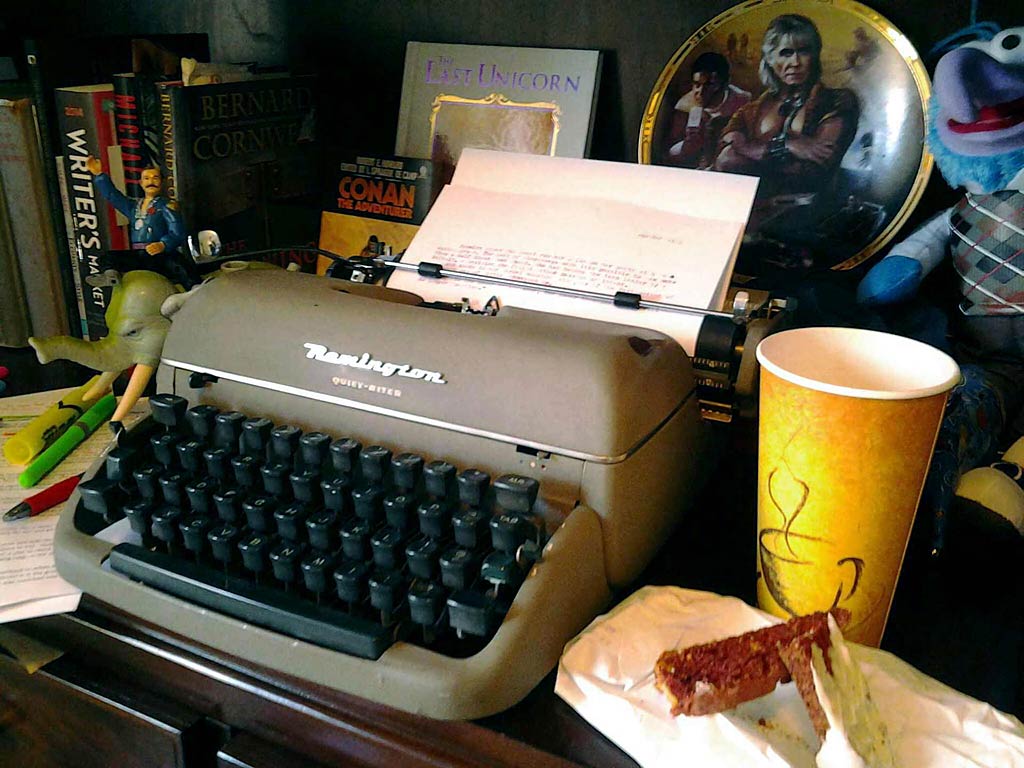Lots of folks are lazy. Their stories don’t have a well thought out concept, an underlying message, their characters aren’t developed with full, meaningful arcs, and they don’t bother to work out key structural points. These stories are destined for the slush pile even before they’re finished.
Now, if you think focusing on your concept, narrowing down a distinct message, including all your structural elements and capturing all the pieces of your plot as you envision the story in your head will yield a good story… you’re probably right. Just having those things will put your story ahead of most in the pack.
But if you want to make your good story GREAT, you need to recognize that GREAT stories don’t just appear because you have a bunch of those things in place…
Great stories are forged when you actively MAKE all the things WORK TO BE GREAT.
Great (or Genuine, as I refer to them in “Storycraft for Comics”) stories are artificial constructs, created with a number of distinct goals in mind. All the elements we deem necessary (listed above to name a few) of the story have to actually be shaped and molded, pushed and pulled into place, in order to support and emphasize each other… and ultimately express the message of the story.
This means, you often have to put aside your own ego of how you originally thought the story should unfold and CHANGE IT to how it NEEDS TO UNFOLD.
*** I can’t emphasize this mindset enough. ***
A lot of the time, your ego is locked onto superficial traits. Often little nuggets of creative inspiration that came to you early on that attracted you to the concept, or solidified it in your head.
The minute you let these elements take the reigns and start dictating the direction of the story, instead of the structure and needs of the story itself dictating where it should go—you are truly sunk.
Let me give you a quick example:
A while back a writer came to me with a superhero group comic concept/story he needed help with. He had very particular vision of each character. They were a happy go lucky bunch, working well together to tackle the bad guys and obstacles thrown their way.
The problem was the character arcs were not developed and the entire first two acts had nearly no conflict—they were primarily an introduction to the characters and their powers.
Other problems aside, I told the client the story needed conflict between the members of the group to showcase the flawed side of their character arcs and act as a catalyst to ultimately pull them together, in turn highlighting their completed arcs and the message at the end of the story (a “united we stand, divided we fall” theme if I remember correctly).
The writer’s ego immediately stepped in.
He never envisioned conflict within the group and it didn’t sit well with him. Instead of listening to what the story needed. Instead of looking at the story as a completely artificial system—something he could change and shape like a sculptor pushing clay—as a means to get the deeper points across—he refused to go against his original vision and add conflict to the group.
I helped him finish the story and refine the concept. He was ecstatic with my input and direction in the end, but I knew immediately upon completion, the decisions he made sacrificed too much of the story to make it a success in the market.
That was three or four years ago and I’ve never heard or seen anything else of the project. In fact, I’ve helped with other stories since, so I’m guessing he just shelved it.
Don’t let your ego get in the way of you writing a great story!
Always listen to and work to, the story first.▪
About the Author —
Nick Macari is a full-time freelance story consultant, developmental editor and writer, working primarily in the independent gaming and comic markets. His first published comic appeared on shelves via Diamond in the late 90’s. Today you can find his comic work on comixology, amazon and in select stores around the U.S. Visit NickMacari.com for social media contacts and news on his latest releases.
